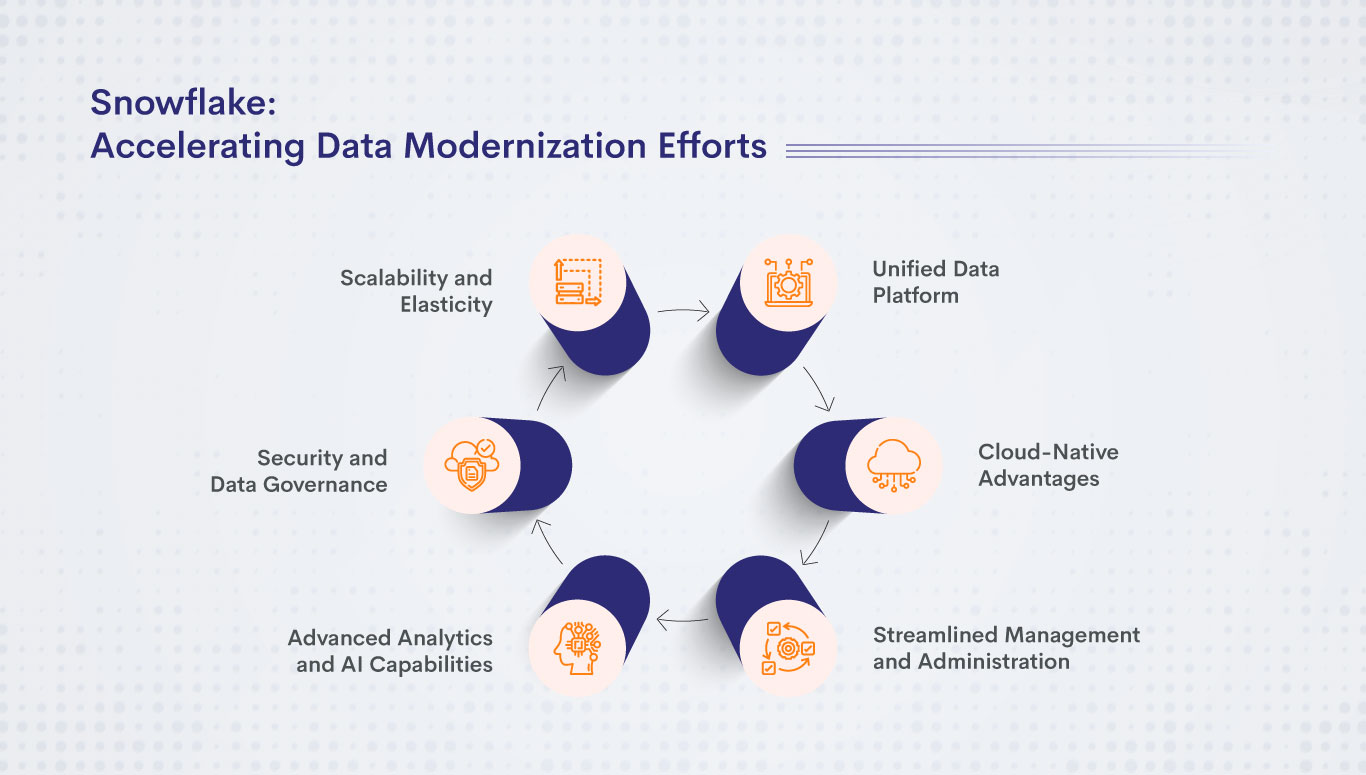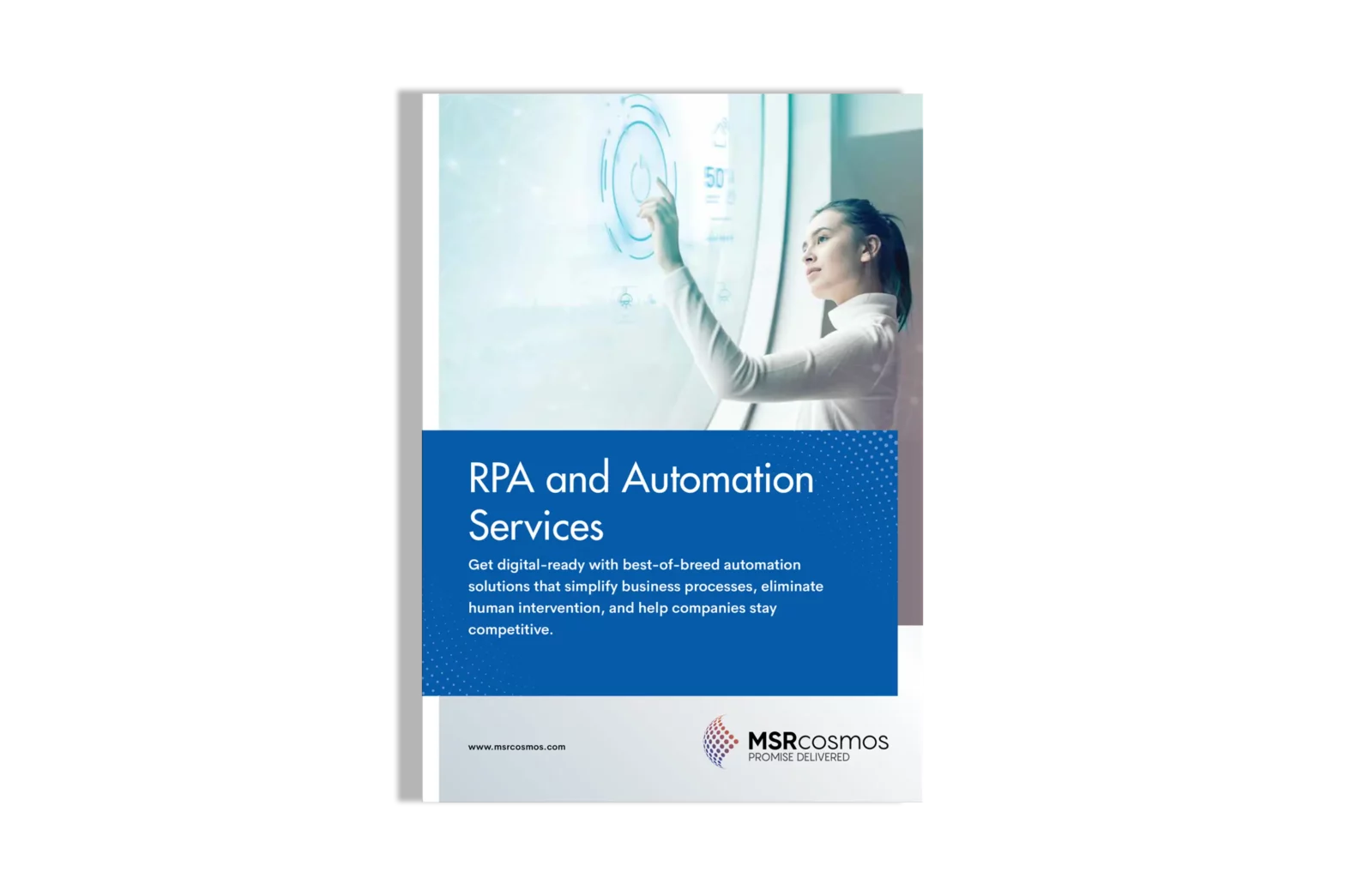- Blog
- July 21, 2023
Snowflake: Accelerating Data Modernization Efforts

- Blog
- July 21, 2023
Snowflake: Accelerating Data Modernization Efforts
In the era of big data and advanced analytics, organizations are constantly seeking modern data platforms that can efficiently handle vast amounts of data and deliver actionable insights. Snowflake, a leading cloud-based data platform, has revolutionized the landscape of data management and analytics.
In this blog, we will delve into the key features and benefits of Snowflake and explore how it empowers organizations to accelerate their data modernization efforts and unlock the full potential of their data.

- Unified Data Platform: Snowflake provides a unified data platform that consolidates data storage and analytics capabilities. It supports various data types, including structured, semi-structured, and unstructured data, allowing organizations to leverage diverse data sources for analytics and insights. Additionally, Snowflake integrates seamlessly with popular analytics and visualization tools, enabling organizations to leverage their existing technology stack.
- Cloud-Native Advantages: Snowflake’s cloud-native design brings a host of advantages to data modernization. By leveraging the cloud, organizations can optimize costs, utilizing pay-as-you-go pricing and avoiding upfront investments in on-premises infrastructure. With Snowflake, there is no need to worry about maintenance and upgrades, as the platform takes care of these aspects, enabling organizations to focus on deriving insights and value from their data.
- Scalability and Elasticity: Snowflake’s unique architecture enables organizations to scale their data infrastructure seamlessly as per their evolving needs. With its cloud-native approach, Snowflake offers virtually unlimited storage capacity and compute resources, allowing organizations to handle massive volumes of data without worrying about infrastructure limitations. This scalability and elasticity ensure that organizations can accommodate data growth and deliver real-time insights efficiently.
- Advanced Analytics and AI Capabilities: Snowflake empowers organizations with advanced analytics capabilities to derive actionable insights from their data. It supports a wide range of analytics tools, languages, and frameworks, enabling organizations to leverage their existing technology stack. With Snowflake’s built-in support for SQL, Python, and other languages, organizations can perform complex analytics, machine learning, and AI-driven operations, unlocking the full potential of their data.
- Security and Data Governance: Data security and governance are critical aspects of data modernization. Snowflake provides robust security features, including encryption, data masking, and role-based access control, ensuring the protection of sensitive data. The platform also supports data governance practices by providing granular control over data access, auditing capabilities, and compliance with industry regulations.
- Streamlined Management and Administration: Snowflake’s cloud-native architecture revolutionizes the management and administration of data platforms. By automating infrastructure provisioning, facilitating seamless upgrades, and handling ongoing maintenance tasks, Snowflake empowers organizations to optimize their resource allocation. This allows teams to shift their focus from time-consuming infrastructure management to extracting valuable insights and fostering innovation. With Snowflake, organizations can streamline operations, boost productivity, and accelerate their data-driven initiatives.
Conclusion:
Snowflake’s cloud-native data platform offers a transformative approach to data modernization. With its cloud-native advantages, seamless scalability, advanced analytics capabilities, and robust security and governance features, Snowflake empowers organizations to maximize the value of their data. By leveraging Snowflake’s cloud-native architecture, organizations can accelerate their data modernization journey, optimize costs, and derive actionable insights to drive business growth and success.




